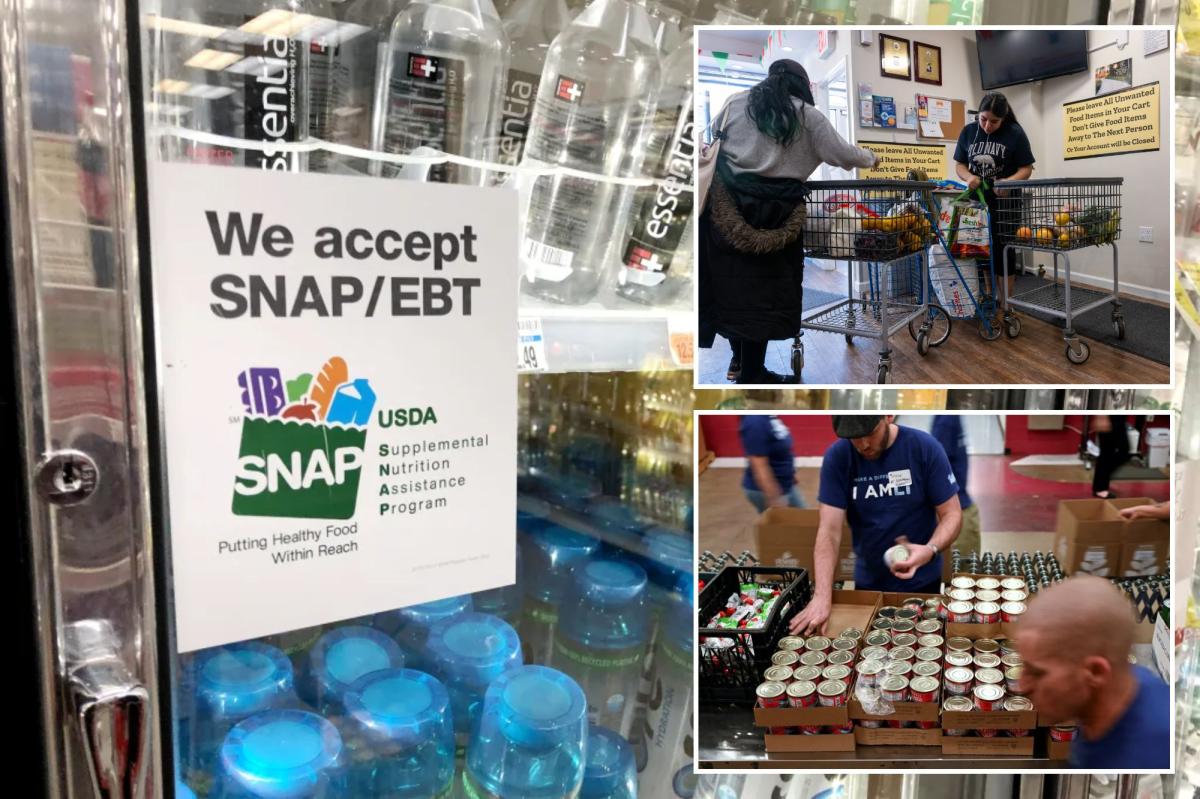Recipients of the Supplemental Nutritional Assistance Program could see their benefits dry up starting next Saturday, Nov. 1 if the government shutdown continues, according to reports and authorities.
SNAP, which serves nearly 42 million Americans every month, was able to keep funds running through October because states received funding before the government shutdown on Oct. 1.
But, in an Oct. 10 letter to state and regional SNAP directors, the US Department of Agriculture warned there wouldn’t be enough funding to cover full benefits in November if the stalemate persists, NBC News reported.
Some states have already announced plans to suspend SNAP payments next month, a move that could dramatically disrupt food access across the country.
The program, which allocates funds to states on a monthly basis, has not gone dark during any other government shutdown in modern history.
Some state officials are urging recipients of SNAP, otherwise known as food stamps, to hoard shelf-stable goods and rely on food banks for additional support.
“If you have accrued SNAP benefits from previous months on your account, use those funds now to buy shelf-stable foods that can last through November and beyond,” the Arkansas Department of Human Services states on its website.
Food banks have blasted the proposed protocol, saying they do not have enough resources or chow to fill the gaps.
“There’s no way that our charitable food network or the system in this country can provide that much food overnight or quickly. It’s an impossible task,” Catherine D’Amato, CEO of the Greater Boston Food Bank, told the outlet.
D’Amato estimated a potential loss of 56 million meals in Massachusetts next month if funds run dry.
Pennsylvania has already halted benefits, issuing a notice that “starting October 16, SNAP benefits will not be paid until the federal government shutdown ends and funds are released to PA.”
“Please be patient and respectful to our staff while we try to assist you through these changes caused by the federal government shutdown,” the statement read.
Texas said payments will stop if the closure lingers past Oct. 27, while Wisconsin warned recipients that leftover October funds “may not be available in November,” the outlet reported.
“Benefits may not be available in November,” read a letter to Wisconsin residents. “This may include any funds remaining on your card at the end of October. You may want to use your benefits to stock up on food before the end of October.”
Oregon and Massachusetts state treasurers said their states have no contingency plans for SNAP if the federal government can’t provide necessary funding in a press call on Thursday, according to the outlet.
Other states have announced scarcely fleshed-out plans for when SNAP benefits run out.
Republican Virginia Gov. Glenn Youngkin said he would declare a state of emergency to provide food benefits to SNAP beneficiaries. The details of how the benefits would be rolled out have not been made clear.
Louisiana Gov. Jeff Landry, another Republican, also vaguely vowed to make it a top priority to make sure “seniors, individuals with disabilities, and children who rely on food stamps do not go hungry in Louisiana.”
New Hampshire officials announced a plan to increase access to food through food banks and mobile pantries, requiring approval of a legislative committee in the GOP-controlled state.
California Gov. Gavin Newsom, a Democrat, said this week that he would deploy the National Guard to help food banks.
“This is serious, this is urgent – and requires immediate action,” Newsom said in a statement.
Lower-income families who qualify for SNAP receive debit cards loaded each month by the federal government to load up on groceries at participating stores.
The average monthly benefit is $187 per person.
Most beneficiaries have incomes at or below the poverty level.
WIC, which provides food for low-income women and children, is also at risk of running dry by the end of October despite a $300 million infusion earlier this month.
“Continue to hold out for healthcare for illegals or reopen the government so mothers, babies, and the most vulnerable among us can receive timely WIC and SNAP allotments,” a spokesperson for the USDA told the outlet, framing the issue as a political showdown caused by Democrats.
The USDA did not immediately respond to The Post’s request for comment.
With Post wires
Read the full article here


